Directory
- Share
Kiah Johnson
- Scholar
- South Africa, United Kingdom
- 2022 PhD Archaeology
- Magdalene College
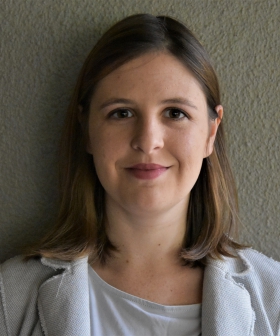
Kiah Johnson
- Scholar
- South Africa, United Kingdom
- 2022 PhD Archaeology
- Magdalene College
I was born in South Africa in 1994, as the country transitioned into an independent democracy. Issues of systemic inequality have shaped the way I engage with the world. I studied an undergraduate degree at the University of Cape Town. There, I became passionate about teaching through the Thethani Debating League, coaching debating to high-school children in under-resourced schools around the Western Cape. I also fell into and in love with the discipline of archaeology, and synergized the two to think critically about the past and present in southern Africa.In 2016, I returned to my home town of Johannesburg to study an Honours degree at the University of the Witwatersrand. I worked to better understand concepts of monstrosity through the paintings of the San. My Masters explored the frontier of the Northern Cape province, challenged by marginal aridity and harsh conditions, low population, vast distances, and historical poverty and socioeconomic disparity. This research has directed my PhD, which will explore pastoral transhumance and sustainable land use in arid regions, in a context of colonization in frontier spaces. I hope to extend my research to interact with modern issues of climate change on a global scale.
Previous Education
University of Witwatersrand, Johannesburg Archaeology 2020
University of Witwatersrand, Johannesburg Archaeology 2016
Jasmine Jordan
- Alumni, Scholar
- United States
- 2021 MPhil Criminological Research
2022 PhD Criminology - Wolfson College
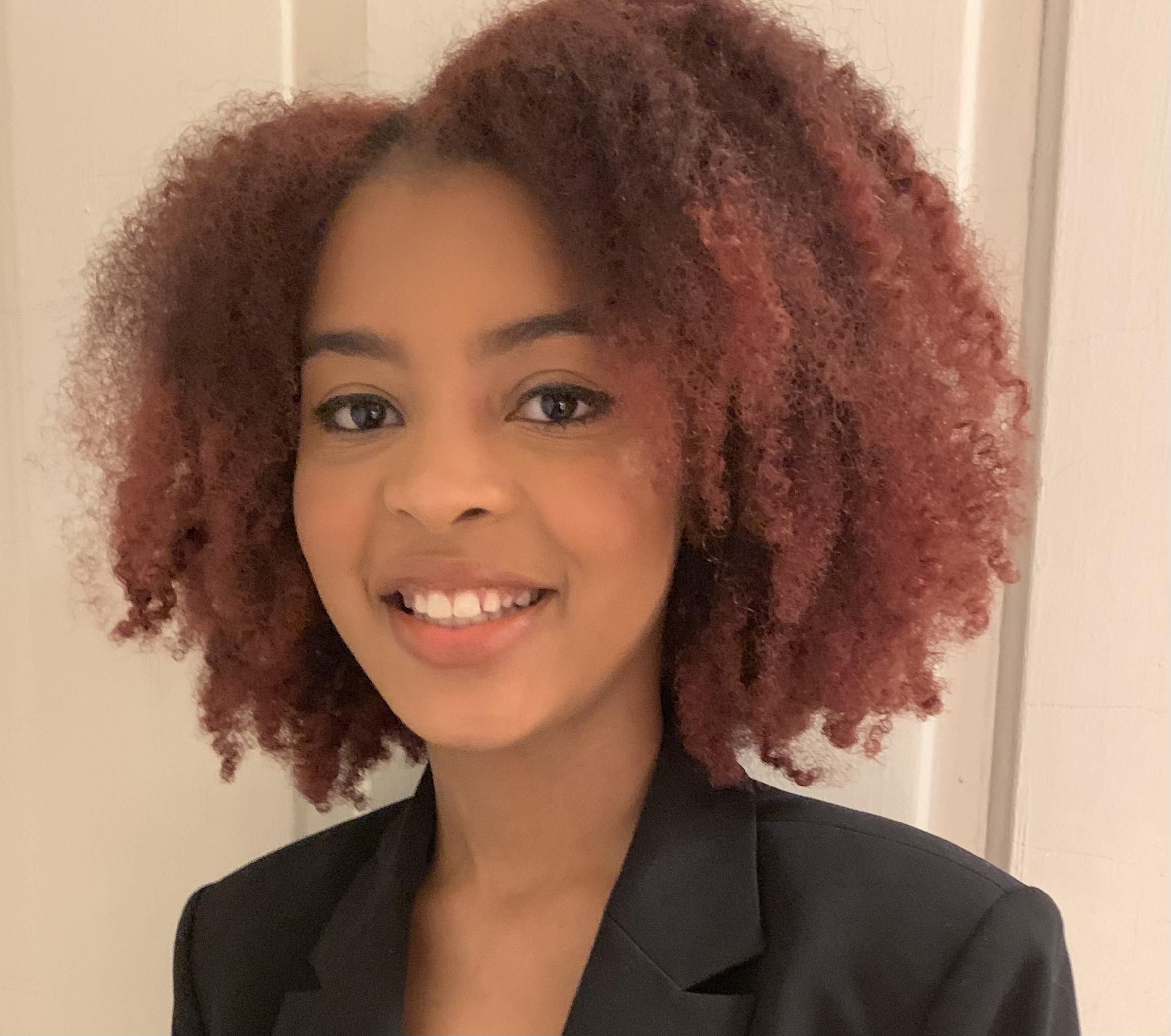
Jasmine Jordan
- Alumni, Scholar
- United States
- 2021 MPhil Criminological Research
2022 PhD Criminology - Wolfson College
A native of Detroit who attended Michigan State University to study Political Science, I am deeply committed to reforming a US criminal justice system that is expensive, frequently counterproductive, and terribly damaging to inmates, their families, entire communities, and the functioning of democracy. As an undergraduate I carried out research on racial hierarchies, the self-segregation of African American and Latinx students in university dorms, and the misrepresentation of minorities in US history high school textbooks. I also served as Michigan State’s President of the Council of Students with Disabilities and as Chief of Staff for a legal non-profit which, among other roles, represents refugees at risk of deportation. As an MPhil student in Criminological Research at Cambridge, I conduct research on the impact of incarceration on the political participation and community engagement of Black women and the symbiotic harms of their incarceration. I will expand my Mphil project to a larger mixed methods project for my PhD. This will prepare me for a career dedicated to making the US criminal justice system more rational, equitable, and humane.
Previous Education
University of Cambridge Criminology 2022
Michigan State University Political Science 2021
Maya Juman
- Scholar
- United States
- 2022 PhD Biological Sciences at the Department of Veterinary Medicine
- Selwyn College
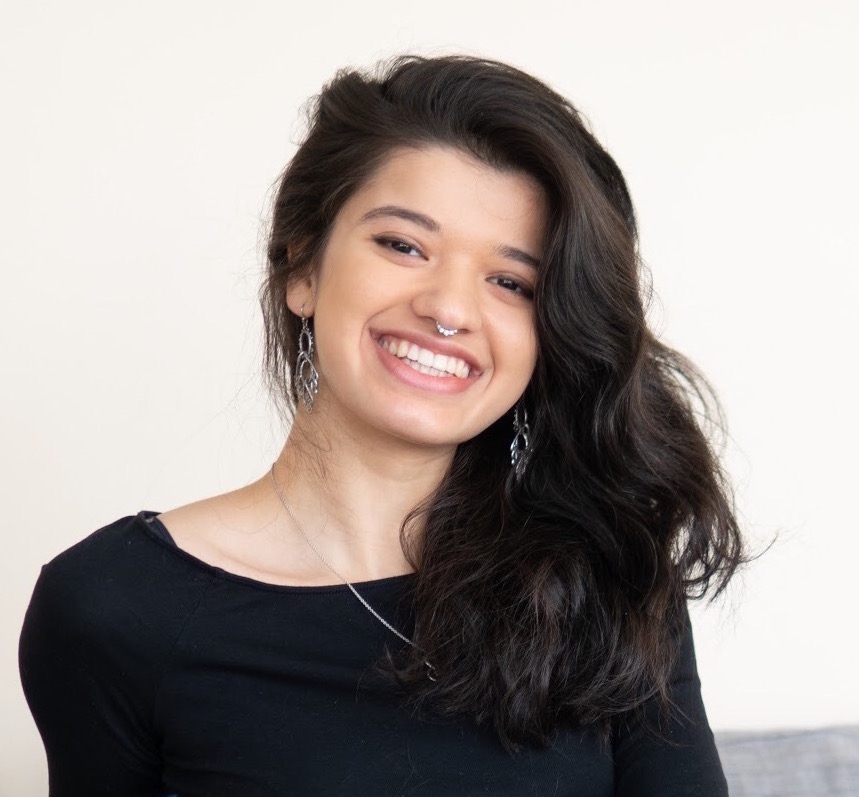
Maya Juman
- Scholar
- United States
- 2022 PhD Biological Sciences at the Department of Veterinary Medicine
- Selwyn College
Growing up in New York City and South India, I developed a lifelong appreciation for biodiversity and curiosity about global change. I completed my B.S. in Ecology and Evolutionary Biology at Yale University, where I conducted research on South and Southeast Asian mammal biogeography. Upon graduating in 2020, I worked on COVID-19 response at the Philadelphia Department of Public Health. This work experience, supplemented by my academic background in organismal biology, led me to explore the human-wildlife interface where viral spillover occurs. I am now pursuing a PhD in Biology at the Department of Veterinary Medicine at Cambridge. My thesis centers on the relationship between ecology and viral emergence, with a focus on zoonotic paramyxoviruses in fruit bats. I am particularly interested in the use of natural history museum collections for viral surveillance and host prediction. I strongly believe in accessible and inclusive science, especially in the form of creative science communication and outreach. I look forward to collaborating with the Gates Cambridge community to tackle pressing issues at the intersection of public and planetary health.
Previous Education
Yale University Ecology & Evolutionary Biology 2020
Links
Kimia Kamelian
- Scholar
- Canada, Iran, Islamic Republic of
- 2022 PhD Medicine (Science)
- St Edmund's College

Kimia Kamelian
- Scholar
- Canada, Iran, Islamic Republic of
- 2022 PhD Medicine (Science)
- St Edmund's College
My research experience in viral genetics and my desire to make a meaningful intervention in guiding public health responses to epidemics has led me to the PhD program in Medicine at the University of Cambridge. During my MSc degree at the University of British Columbia, I investigated the utility and limitations of sequencing in monitoring circulating viruses. I found myself drawn to the field of viral genomics and the applications of sequencing. I became aware of the power of technology when I observed the direct impact a change in prescription, put forth after detection of drug resistance, can have in the life of an individual living with HIV. My experiences left an indelible mark as I realized that my research could influence clinical practice. My future aim is to expand on the utility of viral sequencing, either for diagnostics and guiding of prescribed regimens or for surveillance purposes, and contribute to communities that are not extensively studied or studied prospectively to reduce health disparities. I am incredibly honored to join the Gates Cambridge community, and I look forward to sharing knowledge with future global leaders across multiple disciplines.
Previous Education
University of British Columbia Experimental Medicine 2019
University of British Columbia Integrated Sciences 2016
Ryan (Joonsuk) Kang
- Scholar
- Korea, Republic of, United States
- 2022 PhD Chemistry
- Trinity College
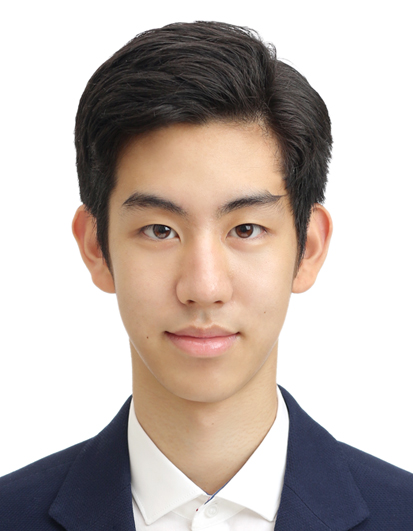
Ryan (Joonsuk) Kang
- Scholar
- Korea, Republic of, United States
- 2022 PhD Chemistry
- Trinity College
I was born in the United States but moved back to South Korea after a few years, before finally coming to the UK. I am currently in my last year of my Natural Sciences at Cambridge degree specialising in Chemistry.Growing up, I was fascinated by the insects and birds I would see whilst hiking in the mountains in and around Seoul. Throughout my school life, this wonder and curiosity I had for the natural world evolved from the macroscopic to the microscopic – the fundamental chemical reactions that drives everything. Pursing my interests in chemistry led to my involvement in the Chemistry Olympiads, where I represented the UK in the International Chemistry Olympiad for two years. During this time, I began to appreciate the importance of organic synthesis, especially in the development and production of pharmaceuticals. For my PhD, I will be investigating new reactions and new reactivities in the context of biological systems. By explicitly targeting biomolecules, the aim is to not only discover and optimise relevant reactions but also expedite the process of new chemistry being used in therapeutic applications to improve and save lives.
Previous Education
University of Cambridge Chemistry 2022
Deusdedit Kansiime
- Scholar
- Uganda
- 2022 PhD English
- Sidney Sussex College

Deusdedit Kansiime
- Scholar
- Uganda
- 2022 PhD English
- Sidney Sussex College
During my undergraduate and graduate studies at Makerere University in Uganda, I was fascinated by the gap between the literature we were taught and the literary texts that had currency on the Ugandan cultural scene. These texts were produced by an emerging generation of writers whom my university professors knew so little about and had so little interest in, yet these writers and their writing fraternities constituted the most vibrant literary ecosystem that resonated with contemporary publics. These were the writers dominating shortlists of literary prizes in the region. They associated themselves with non-academic, non-commercial literary organisations – LINGOs. I intend to use my PhD to explore the underbelly of this network of literary value in Africa by examining the institutional logic of these literary organisations in light of their posture as expressions of literary activism. By theorising literary activism in a LINGO framework, my PhD project shall help inform publishers, literary award organisations, writers and academics about the emerging literary enterprise in Africa. It will also help demonstrate how the LINGO framework is essential in reconfiguring cultural discourses and creating new spaces for free expression.
Previous Education
Makerere University Literature 2021
Makerere University Education - English Major 2016
Anjali Kantharuban
- Alumni
- United States
- 2022 MPhil Theoretical and Applied Linguistics
- Churchill College
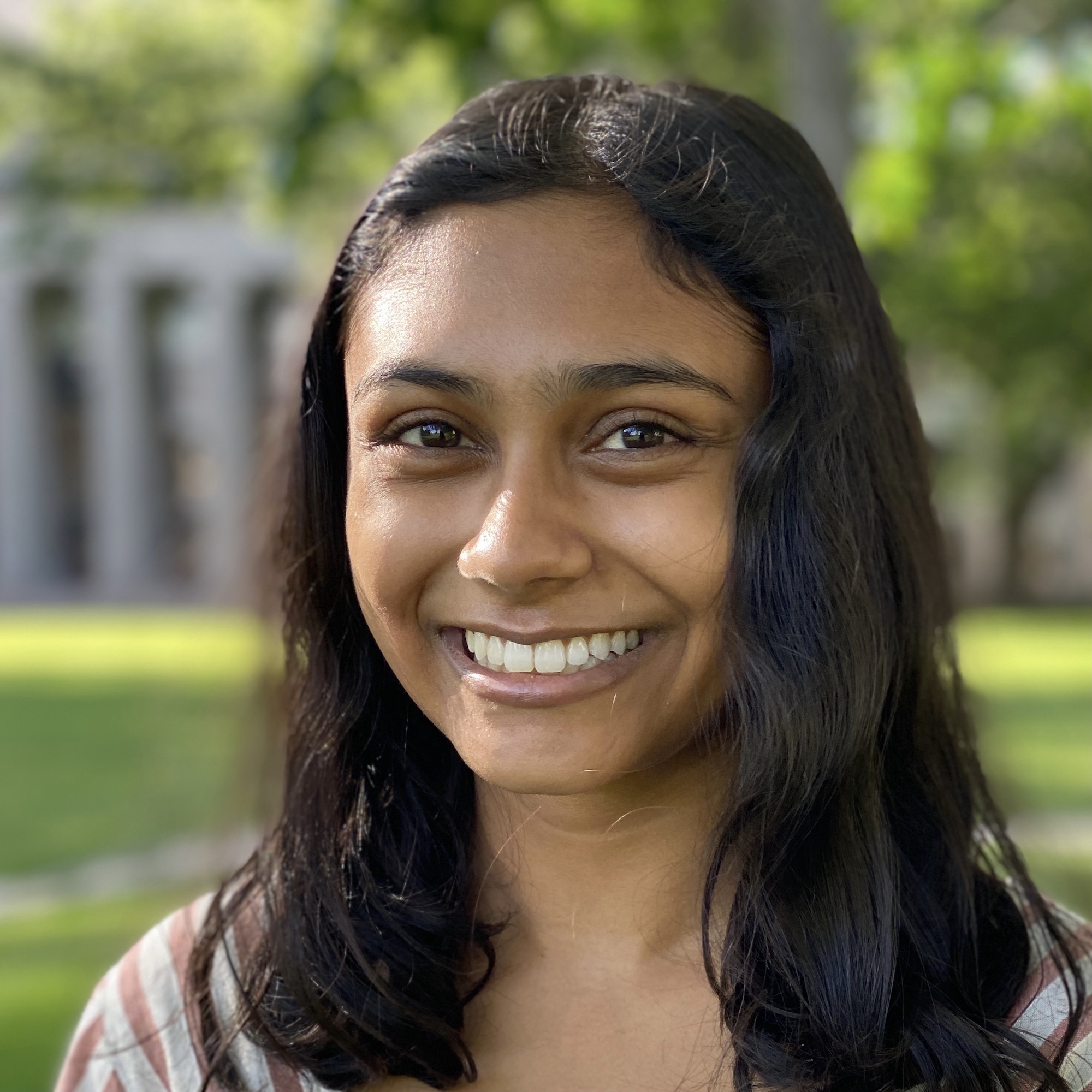
Anjali Kantharuban
- Alumni
- United States
- 2022 MPhil Theoretical and Applied Linguistics
- Churchill College
I grew up as a first-generation immigrant in California before attending the University of California, Berkeley to study Computer Science and Linguistics. As a non-standard dialect speaker, I have seen first-hand how globalized communication has intensified pressures to convert to specific languages in exchange for economic reward. While getting my bachelors, I was exposed to natural language processing and its capacity to make information and tools more broadly accessible by allowing interactions with technology to take place in human languages. At the same time, I noticed that the field still primarily focuses on a small set of languages. My goal is to make natural language processing equally functional for all languages, in all their variations, to prevent a further loss of linguistic and cultural diversity. Specifically, I want to create natural language interfaces for computational systems so minority language speakers can use them without altering their method of communication.
Previous Education
University of California, Berkeley Computer Science, Linguistics 2022
Katherine Kauma
- Scholar
- United States
- 2022 PhD Astronomy
- Clare Hall
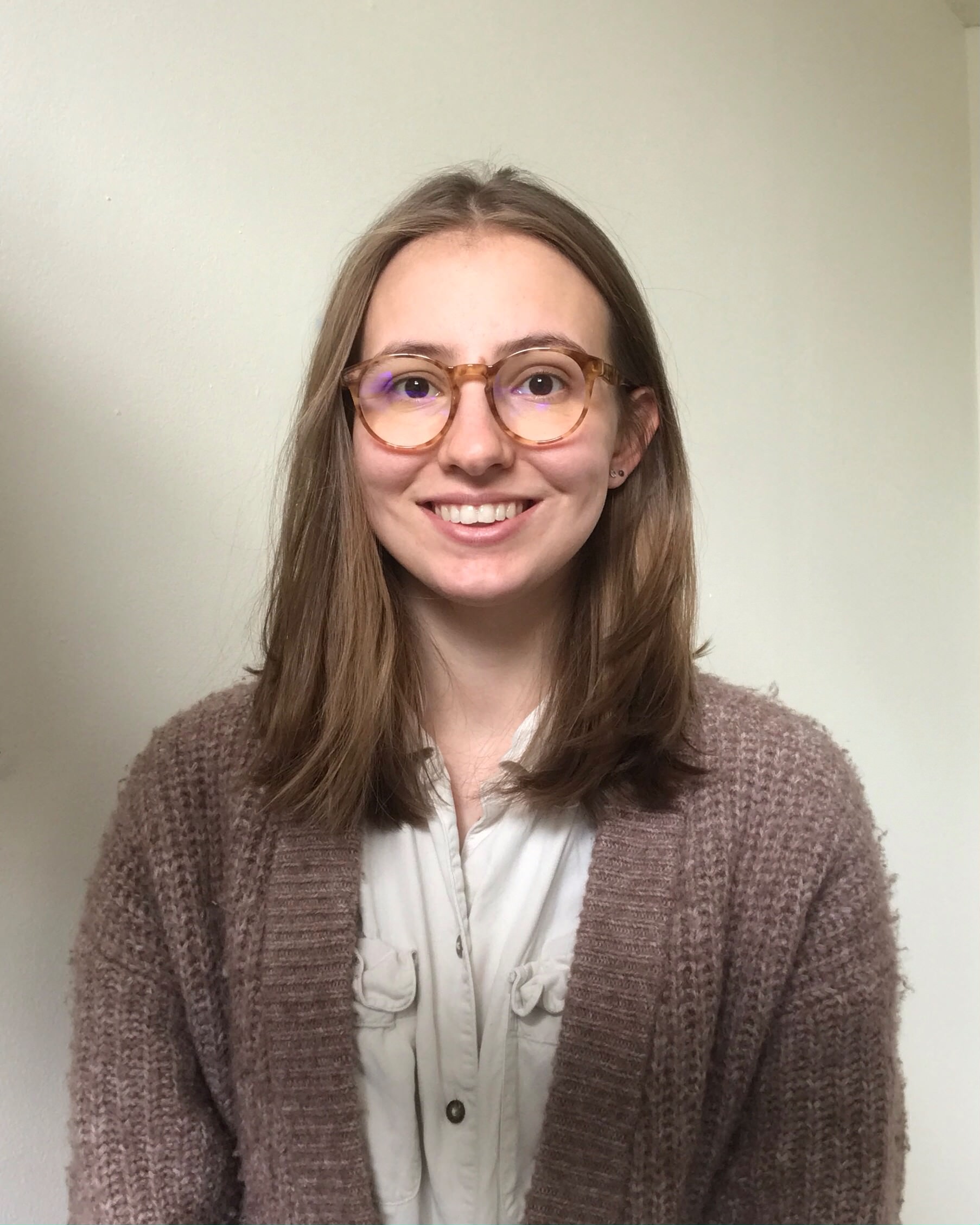
Katherine Kauma
- Scholar
- United States
- 2022 PhD Astronomy
- Clare Hall
My first taste of astronomy was at a public star party just outside of Pittsburgh, Pennsylvania. As soon as I glimpsed through the observatory telescope to see the colorful bands and bright moons of Jupiter, I knew that I would dedicate my life to understanding our universe and how it came to be. I earned a B.S. in Physics and a B.S. in Astronomy & Astrophysics at the Pennsylvania State University. There, I discovered my calling in the form of quasars - supermassive black holes consuming matter at the centers of galaxies. I continued my studies in the MASt. in Astrophysics program at the University of Cambridge. My doctoral research will aim to find high-redshift quasars and study the Epoch of Reionization, a period of great change marking the end of the Cosmic Dark Ages and the beginning of the universe we are familiar with today. I hope that my work will advance our understanding of the history and evolution of the universe. Alongside research, I will work to improve accessibility and inclusivity in my field through advocacy and outreach as a Gates-Cambridge Scholar and member of the Institute of Astronomy. I am thankful for this opportunity, and I look forward to being a part of this incredible scholar community.
Previous Education
University of Cambridge Astrophyics 2022
Pennsylvania State University Astronomy and Astrophysics 2021
Pennsylvania State University Physics 2021
Yaroslava Kyrychenko
- Scholar
- Ukraine
- 2022 PhD Psychology
- King's College

Yaroslava Kyrychenko
- Scholar
- Ukraine
- 2022 PhD Psychology
- King's College
Growing up in Kyiv during the Maidan Revolution, I was fascinated by the power modern technology has in shaping politics and democracy. As a mathematics and psychology student at New York University, I used natural language processing and other data science methods to study social processes online. As a PhD student in psychology, I will continue using data science tools to investigate polarization, misinformation, and social identity on social media. I hope to help make social media more politically productive and contribute to our knowledge of how identities develop. Throughout my research career, I want to bring psychologists and data scientists closer together to give both the tools to create a more fair society enabled by modern technology. I hope to use my skills and experience to help rebuild Ukraine.
Previous Education
New York University Mathematics and Psychology 2022
Links
https://github.com/yarakyrychenko
https://medium.com/@k.yara
https://www.linkedin.com/in/yaroslava-kyrychenko
Hasina Lamichhane
- Alumni
- Nepal
- 2022 LLM Law
- Hughes Hall
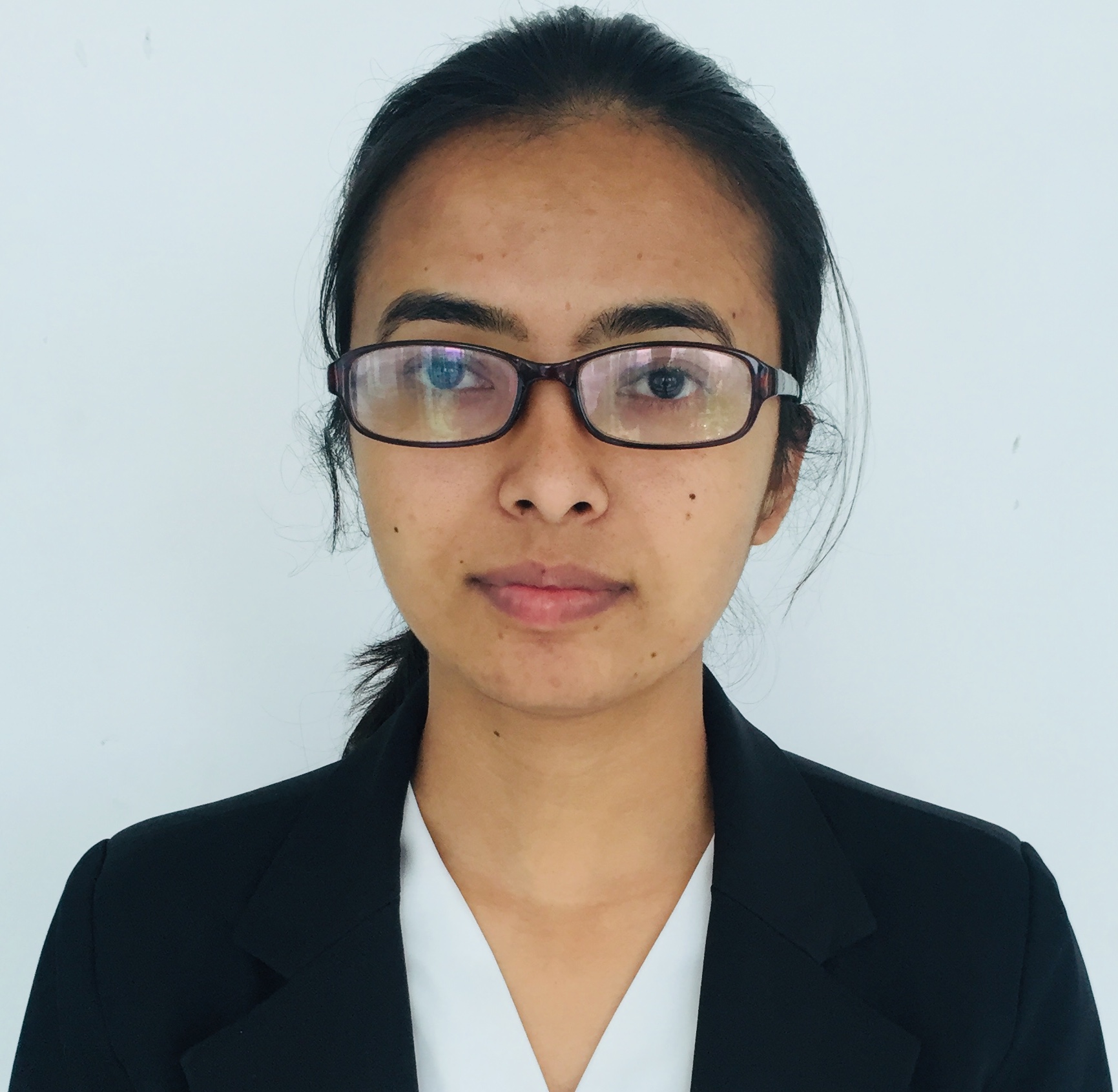
Hasina Lamichhane
- Alumni
- Nepal
- 2022 LLM Law
- Hughes Hall
I grew up reading Nepal as a "small poor landlocked country" in school textbooks, and as an adult, I have lived to witness the vulnerability of actually living in a developing country. After completing my undergraduate in law (B.A. LL.B.) from Tribhuvan University, I had opportunities to work with law firms and research groups which navigated me with possible directions to contribute to the economic prosperity of the country as a legal practitioner. With my experience of working alongside young entrepreneurs, local businesses, and foreign investors, I learned the prospects of investing capital, utilizing resources, and creating opportunities in development sectors. I aspire to be part of this larger effort to change the fate of the remittance and aid-driven economy of Nepal. At the University of Cambridge, I will study Master of Law with a particular focus on corporate governance, investment law, and international commercial litigation which I will use to fill in the existing gap in commercial legal practice in Nepal and add experience to Nepali university education. It is an immense honor to be a part of the Gates Cambridge community and I hope to make a difference.
Previous Education
Tribhuvan University B.A.LL.B. 2019
Ryan Mian Chien Law
- Scholar
- Malaysia
- 2022 PhD Medical Science @ MRC Cognition and Brain Sciences Unit
- St Catharine's College
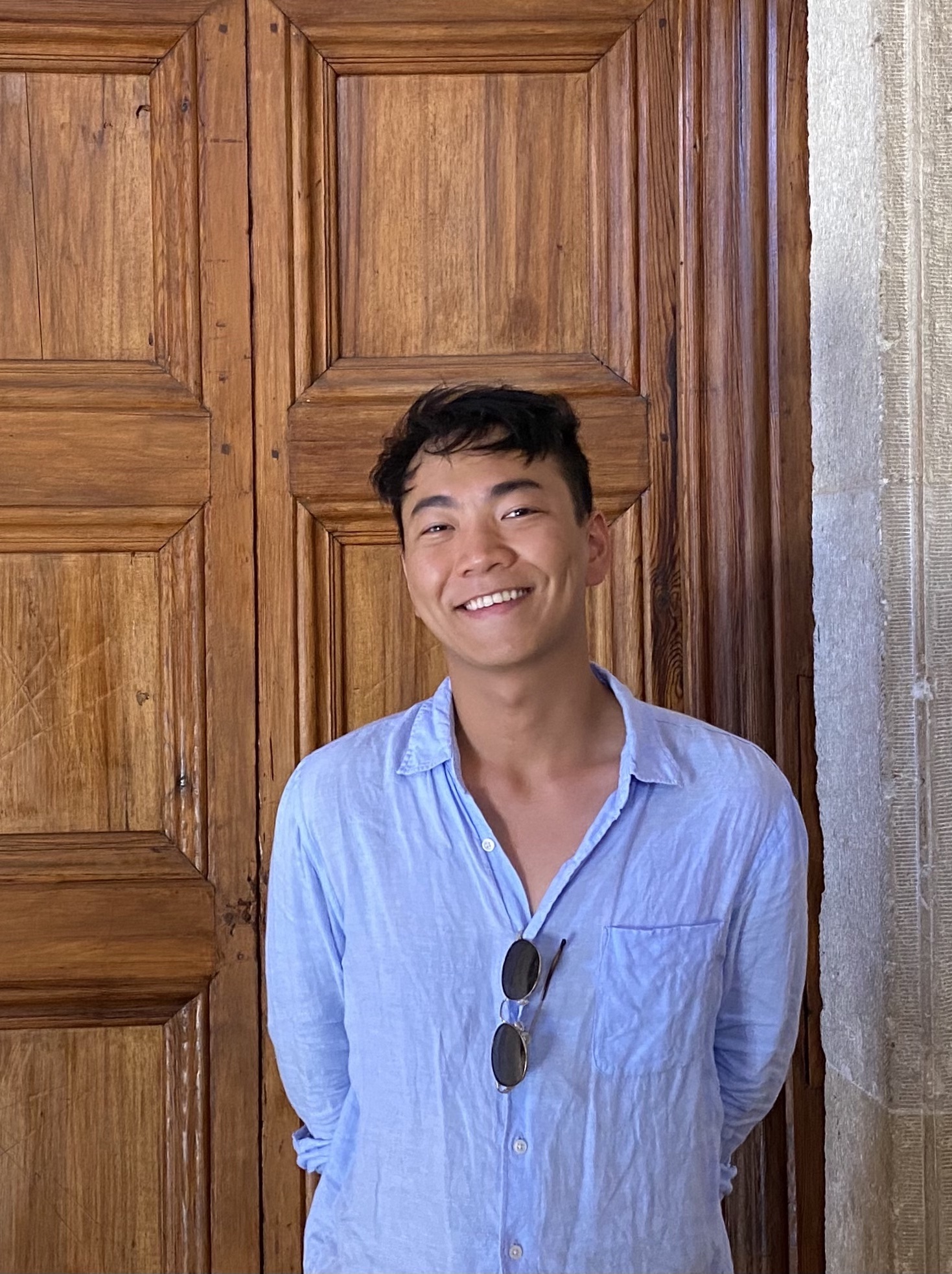
Ryan Mian Chien Law
- Scholar
- Malaysia
- 2022 PhD Medical Science @ MRC Cognition and Brain Sciences Unit
- St Catharine's College
I was raised in Malaysian Borneo, a linguistically heterogeneous environment that exposed me to a plethora of linguistic phenomena. I sought explanations by exploring different facets of language research at UCL, Harvard University, New York University, and the Max Planck Institute for Psycholinguistics. Throughout my education and research, I immersed myself in the psychology, philosophy, development, and neuroscience of language. My PhD seeks to expand our understanding on the neural bases of meaning composition, our striking capacity to combine simple concepts into more complex ones. A substantial focus of this work would be to better understand this capacity in relatively natural contexts, such as audiobook listening. Such tasks are particularly suitable for certain populations such as children on the autism spectrum or individuals with acquired brain injury, for whom standard experimental tasks might not be appropriate. I am privileged to have mentors who continue to inspire, encourage, and support me in my academic pursuit. I am committed to promoting access to and belongingness in higher education and academia. I am keen on building capacity in this space within the Gates Community and beyond.
Previous Education
Radboud University Nijmegen Cognitive Neuroscience 2022
University College London Linguistics 2018
Catthi Ly
- Alumni
- United States
- 2022 MPhil Health, Medicine & Society
- Fitzwilliam College
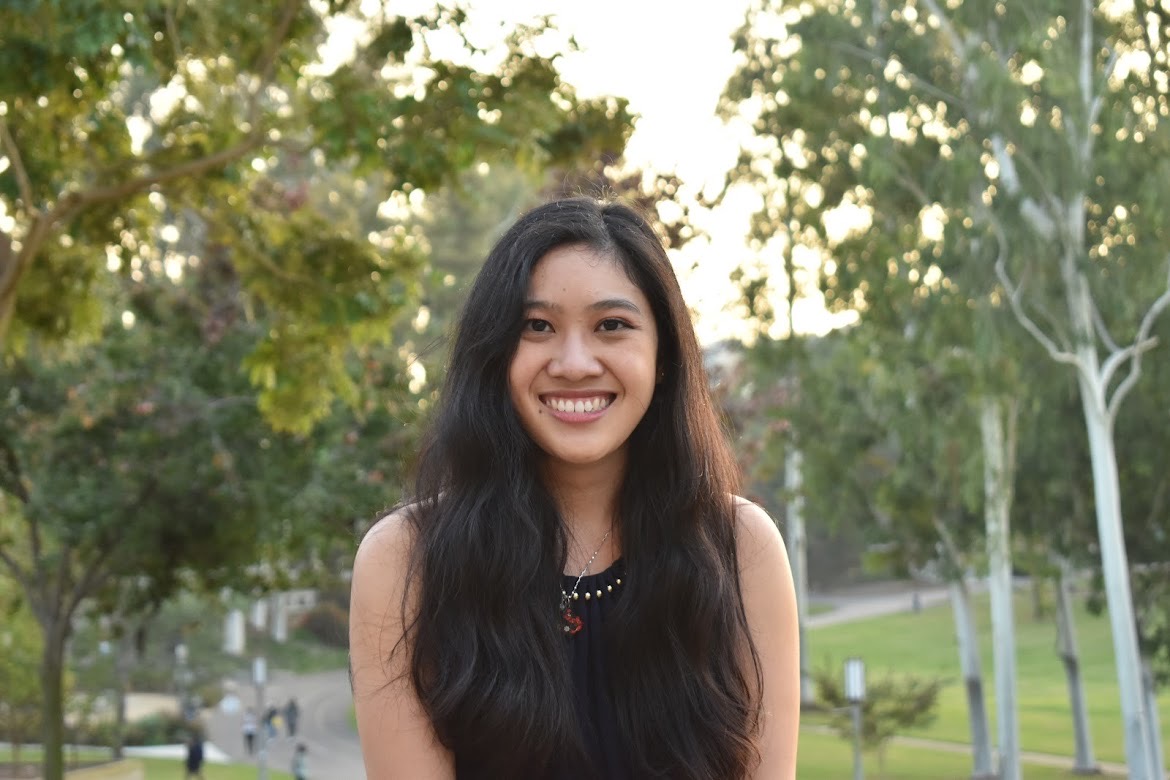
Catthi Ly
- Alumni
- United States
- 2022 MPhil Health, Medicine & Society
- Fitzwilliam College
I grew up in Orange County, California, where I also completed my undergraduate education at the University of California, Irvine with degrees in Human Biology and Anthropology with a minor in the History and Philosophy of Science. Over the past few years, I have had the opportunity to conduct research in neuroscience, philosophy, and public health. Through my interdisciplinary education, research, and work with local nonprofits in Southern California, I became familiar with the intricate interplay between human health and social structures. I learned how political disenfranchisement parallels the inability to access healthcare, and how oftentimes, our postal codes exert more influence over our health outcomes than our genetic codes. During my time as an MPhil student in Health, Medicine, and Society, I will research how medical uncertainty—especially in the case of chronic illnesses such as cancer—complicates the achievement of health equity and how decision-making changes when we reach the scientific limits of medicine. I am humbled to be a part of this community, and as an aspiring physician-anthropologist, I will use my experience as a Gates-Cambridge scholar to work to make healthcare accessible to all.
Previous Education
University of California Irvine Human Biology; Anthropology 2021
Andrew McDonald
- Scholar
- United States
- 2022 PhD AI for the study of Environmental Risks (1+3)
- Clare Hall
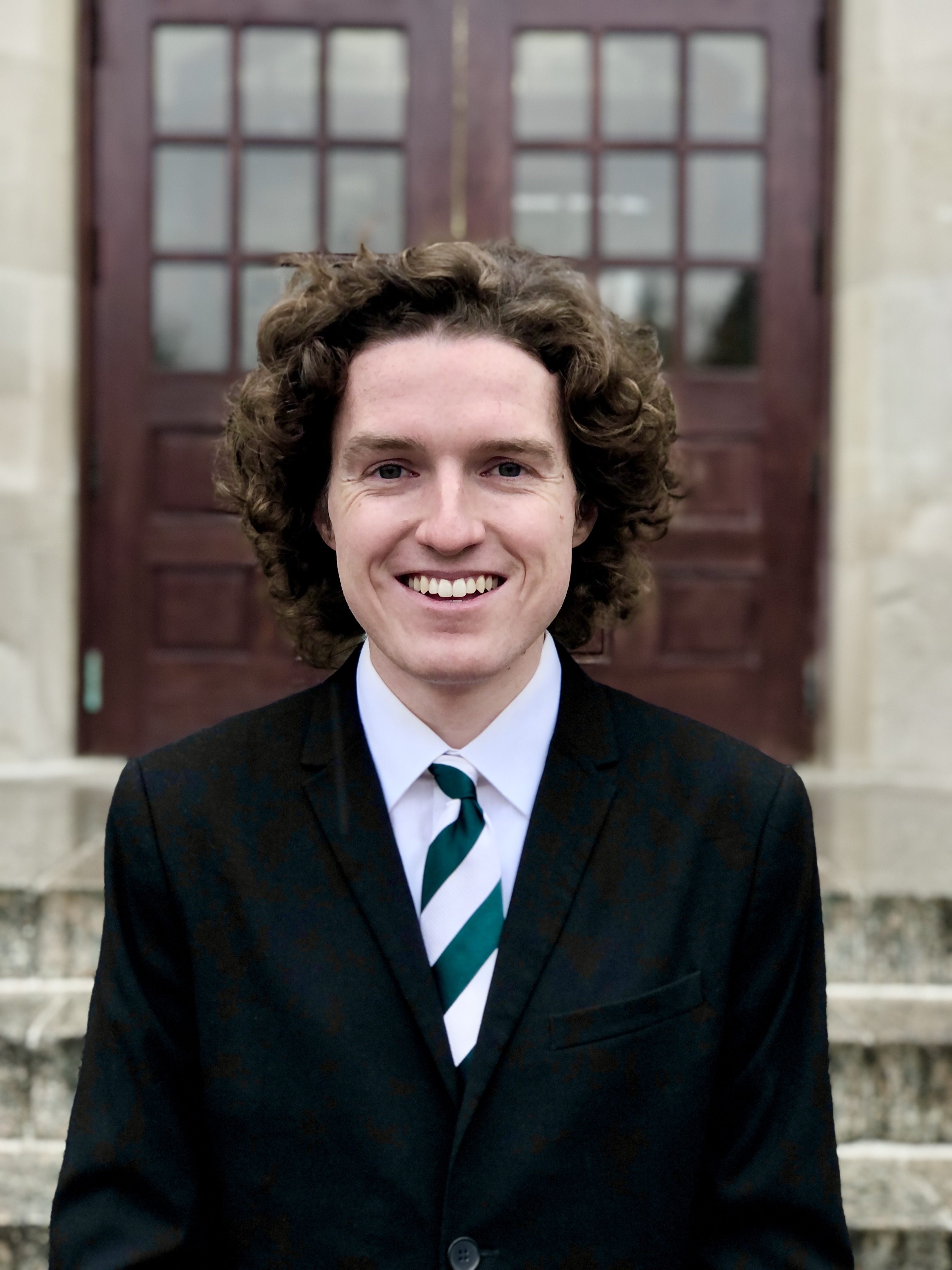
Andrew McDonald
- Scholar
- United States
- 2022 PhD AI for the study of Environmental Risks (1+3)
- Clare Hall
I was raised in Midland, Michigan and Hudson, Ohio an avid outdoorsperson, running, skiing, hiking, and biking my way around North America. As a triple-major undergraduate in Computer Science and Engineering, Advanced Mathematics, and Statistics at Michigan State University, very little of my coursework concerned itself with climate change—yet I now see the climate crisis as the most important problem to which I can dedicate myself and my career. Having spent my academic coming-of-age studying the scientific principles of computational, mathematical, and statistical modeling, with a focus on machine learning and artificial intelligence, I now hope to leverage deep learning to advance research in earth and climate science. Simultaneously, I hope to advance research in deep learning by developing methods which address the challenges posed by modeling high-dimensional spatiotemporal data. As a PhD student within the AI for the Study of Environmental Risks Centre for Doctoral Training at Cambridge and a member of the Gates Cambridge Community, I look forward to collaborating with a diverse team of bright-minded individuals towards these ends. **Andrew will commence his PhD study in 2023.
Previous Education
Michigan State University Advanced Mathematics 2022
Alexander Mentzel
- Scholar
- United States
- 2022 PhD German
- Magdalene College
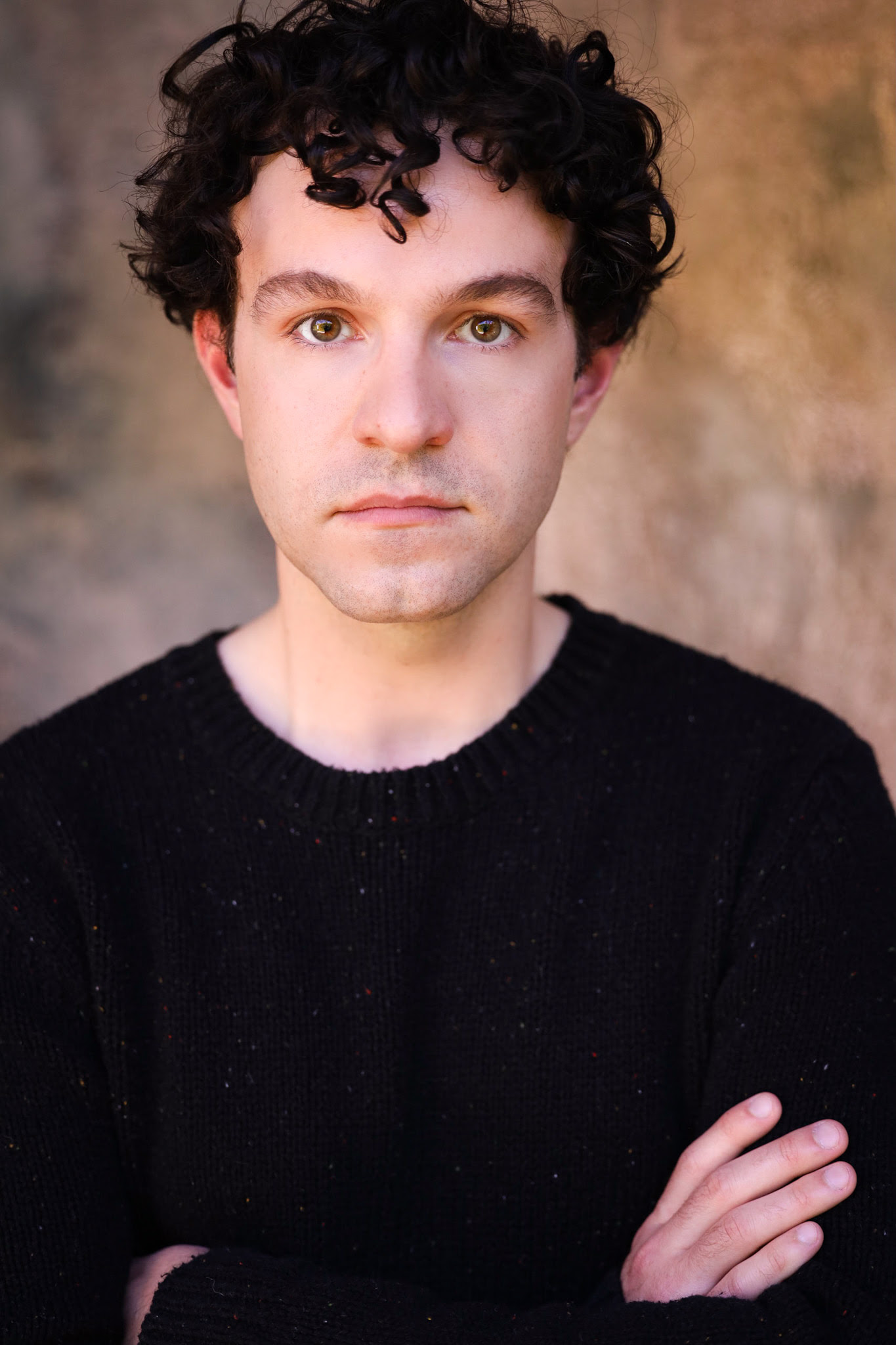
Alexander Mentzel
- Scholar
- United States
- 2022 PhD German
- Magdalene College
I was born in Germany and spent my first years in Cologne. At age ten, I moved, with my family, to the mountainous Pacific Northwest. From my childhood through my early 20s, I worked as a professional actor. I eventually matriculated at The University of Oregon’s Clark Honors College, graduating with a BA in German Literature and a minor in Theatre Arts. In college, I co-founded Averto, a real-time, crowd-sourced data mapping app, which seeks to help people navigate their environment safely. These seemingly disparate experiences kindled a fascination with the performance principles and architectures of online environments, especially how virtual and augmented reality disturb the seeming solidity of civic institutions and commercial online “worlds.” Emergent technologies have the potential for good, but there is great risk that negative consequences, such as discriminatory systems of surveillance, will be amplified in cross-reality environments. As I work on my PhD in German, I will create critical room for a turn to a phenomenological understanding of virtual and augmented spaces. I’m proud to be joining the Gates Cambridge community, comprised of scholars that embrace their role to provide alternative imaginaries of the future.
Previous Education
University of Cambridge ELAC 2022
University of Oregon Ger. Lit & Culture and Theatre 2020
Goethe Universität Frankfurt Guest Student in Dramaturgy 2018
Sara Merican
- Scholar
- Singapore
- 2022 MPhil Film & Screen Studies
- Downing College

Sara Merican
- Scholar
- Singapore
- 2022 MPhil Film & Screen Studies
- Downing College
I am interested in the urgency and usefulness of "island cinema" as an aesthetic and political category that can be applied to readings of Southeast Asian films, focusing on works by independent filmmakers in Indonesia, the Philippines and Singapore. By privileging "island" as a critical category, I want to investigate how this more eco- and geo-conscious approach can expand academic discourse on Southeast Asian films as they pertain to decoloniality, marginalities and the non-human. I've worked as a film journalist and critic, with work published in Deadline, The Hollywood Reporter, The Telegraph, the British Film Institute's Sight & Sound, Forbes.com and NME. I am a member of FIPRESCI and was a Golden Globes voter from 2022-2024. I've worked as a programmer for the Singapore International Film Festival and served on the critics’ jury at the Venice Film Festival 2022. Outside of film, I am passionate about sports and have been part of Singapore's national cricket and football teams. In 2023, I represented Singapore in cricket at the Southeast Asian Games held in Cambodia.
Previous Education
University of Pennsylvania Cinema Studies and English 2020
Jennifer Miao
- Scholar
- United States
- 2022 PhD Biological Science @ MRC Laboratory of Molecular Biology
- St John's College
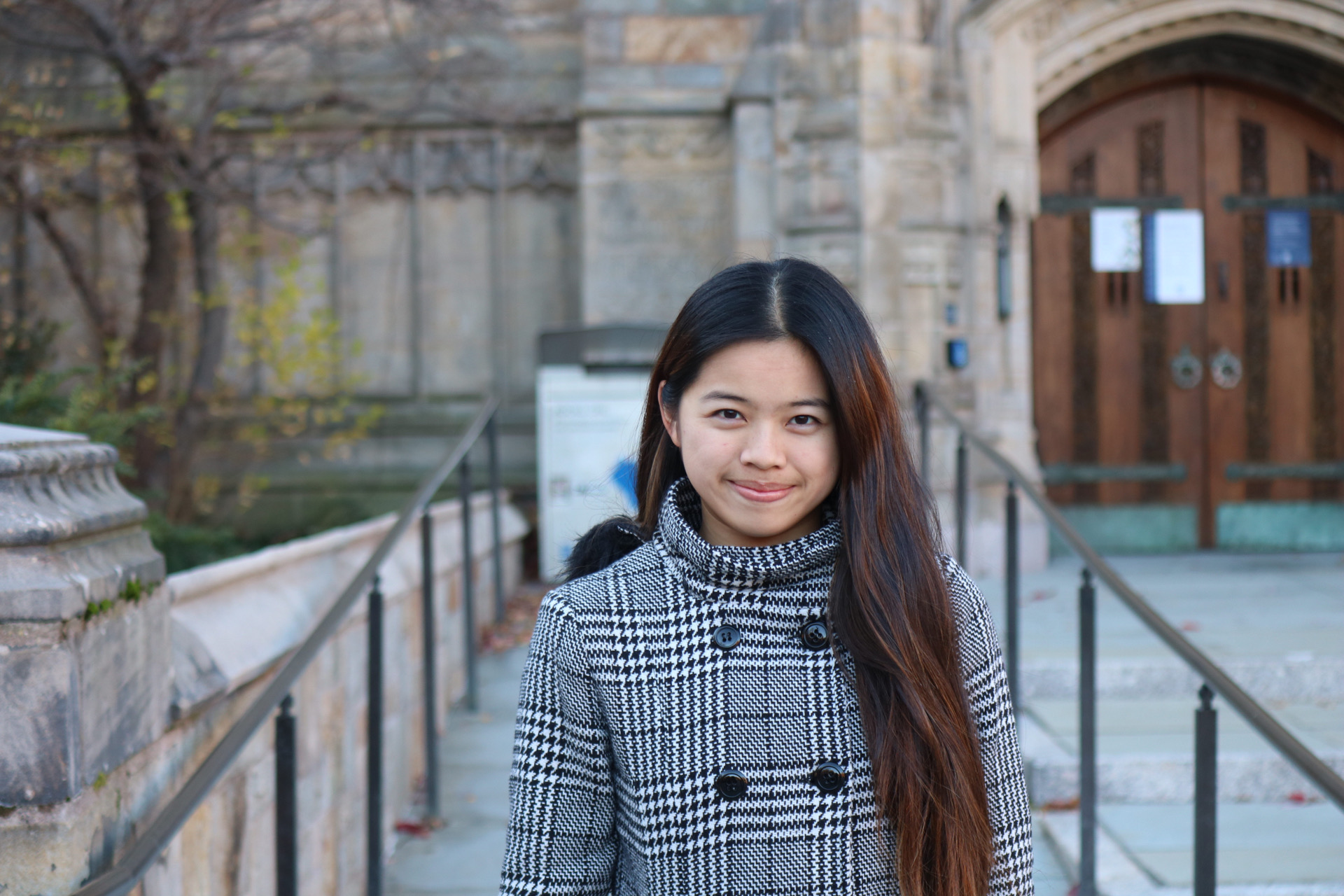
Jennifer Miao
- Scholar
- United States
- 2022 PhD Biological Science @ MRC Laboratory of Molecular Biology
- St John's College
My interest in structural biology began in high school, where I studied peptide segments that form the core of infectious prion fibrils by x-ray crystallography. This research experience culminated in my giving an invited talk at the 2019 CCP4 Study Weekend in Nottingham University, UK. My exposure to science at an early age led to my pursuit of a B.S. in Molecular Biophysics and Biochemistry at Yale. In college, a particularly meaningful research experience was when I worked to understand membrane protein insertion at the endoplasmic reticulum. This experience led to my fascination for the remarkable diversity of membrane proteins. At Cambridge, I will study how the mitochondria, an essential organelle in nearly all eukaryotic cells, imports more than 1000 proteins from the cytosol. This project could lead to a better understanding of how defects in mitochondrial metabolism cause various human neurodegenerative and metabolic diseases and to the design of novel therapeutics targeting mitochondrial metabolism. The Gates Cambridge Scholarship will give me the incredible opportunity to pursue my passion for interdisciplinary projects at the Laboratory of Molecular Biology with some of the world’s experts in the field.
Previous Education
Yale University Molecular Biophysics & Biochem 2022
Usama Javed Mirza
- Scholar
- Pakistan
- 2022 PhD Education
- Wolfson College
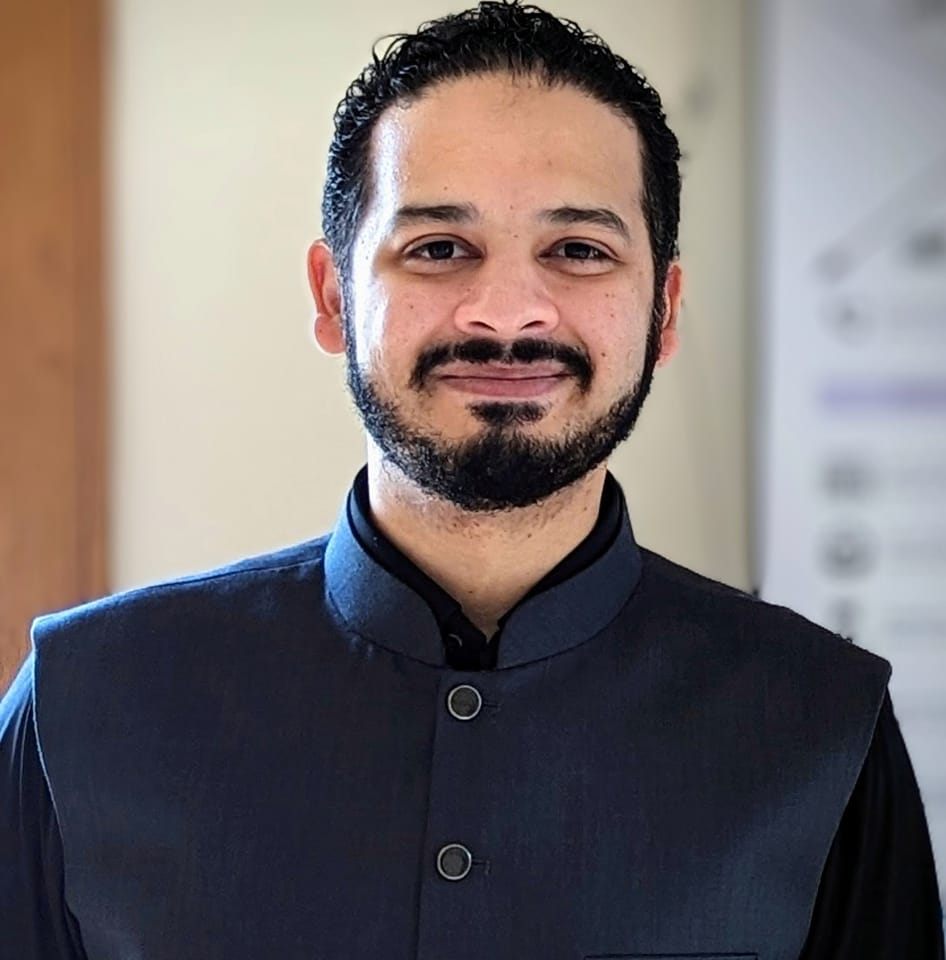
Usama Javed Mirza
- Scholar
- Pakistan
- 2022 PhD Education
- Wolfson College
I studied Physics and Philosophy at LUMS (Pakistan), and then Education as a Fulbright Scholar at Teachers College Columbia University. I am also a New York state trained Emergency Medical Technician. In the last decade I have worked as an educator and education policy consultant. In 2017 I founded Saving 9, a social enterprise dedicated to transforming mindsets in order to save lives; pioneering initiatives such as launching Pakistan's first women-run ambulance, the world's 2nd mental health ambulance and creating a novel Socio-Emotional Inclusion Index that measures how well regions are catering to the mental wellness of youth. Through my work, I came to realise that countless social problems are aggravated by lack of conversations around science and religion. I also realised that many of these challenges are a consequence of the ongoing impact of centuries of colonialism in the Global South. This is why my PhD research focuses on decolonising science education from within an Islamic framework. I am doing this by contributing both to educational philosophy for Muslim educators, and by conducting participatory action research with Muslim schools to reimagine science education at the secondary school level. This research will provide rich learning on public policies for social issues and help identify roadblocks that hinder citizens of postcolonial Muslim countries from making substantial contributions to the natural sciences.
Previous Education
Columbia University Teachers College Education 2017
Lahore University of Management Sciences Physics 2013
Links
Andrea Morales Loucil
- Scholar
- Puerto Rico
- 2022 PhD Latin American Studies
- King's College
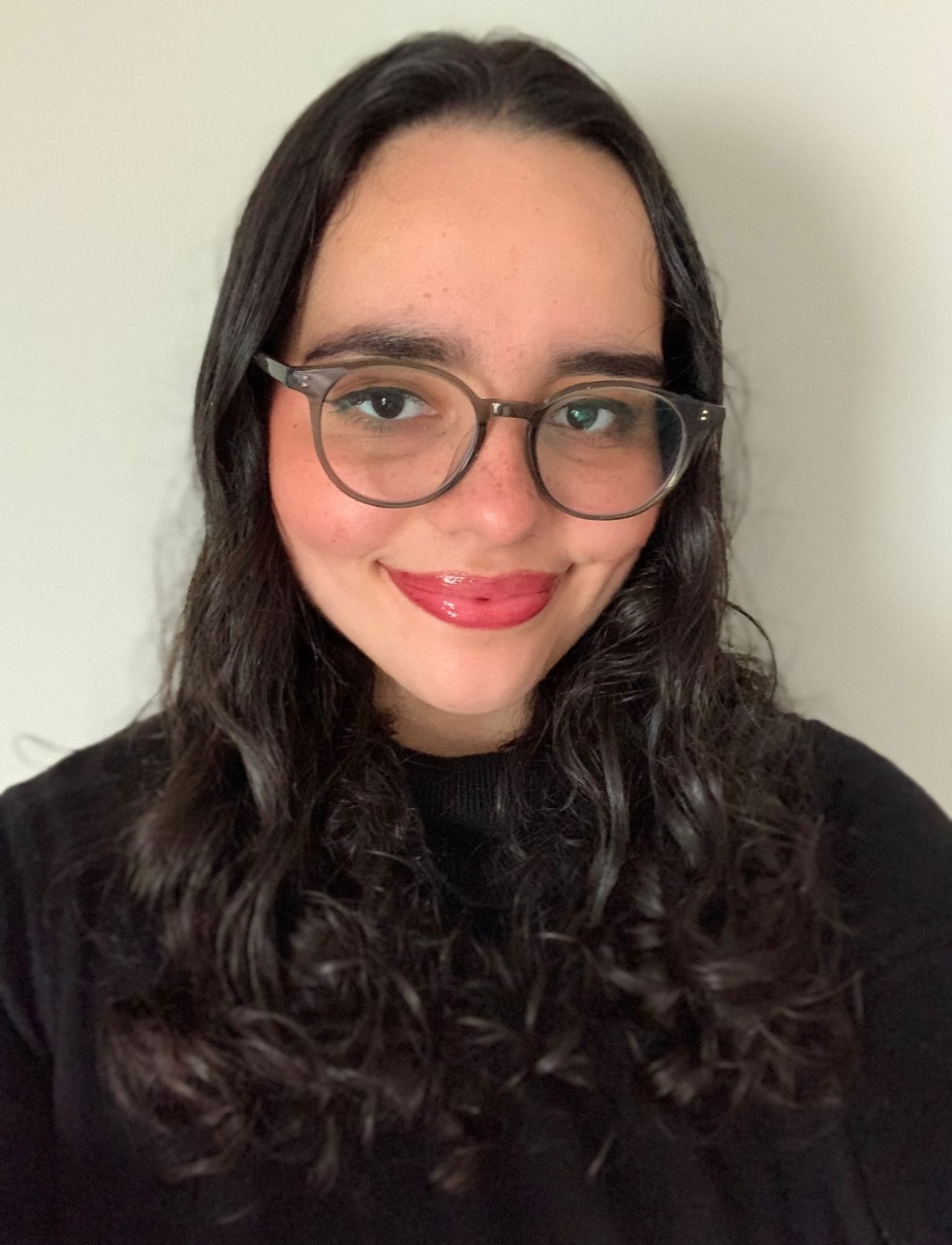
Andrea Morales Loucil
- Scholar
- Puerto Rico
- 2022 PhD Latin American Studies
- King's College
Andrea Morales Loucil is a cultural historian and literary scholar from Aguadilla, Puerto Rico. She is a Gates-Cambridge Scholarship recipient pursuing a Ph.D. in Latin American Studies at King's College, University of Cambridge. Her dissertation examines the production of revolutionary poetics in the nineteenth-century Hispanophone Caribbean. Moreover, her work emphasises how revolutionaries of African descent in Cuba and Puerto Rico used literature to advocate for abolition, organise toward independence, and forge bonds of Afro-diasporic resistance. Andrea’s research broadens how Cuban and Puerto Rican conceptualisations of 'race' affect contemporary understandings of historical narratives, literary movements, and nation-building processes in the Caribbean and Latin America.








